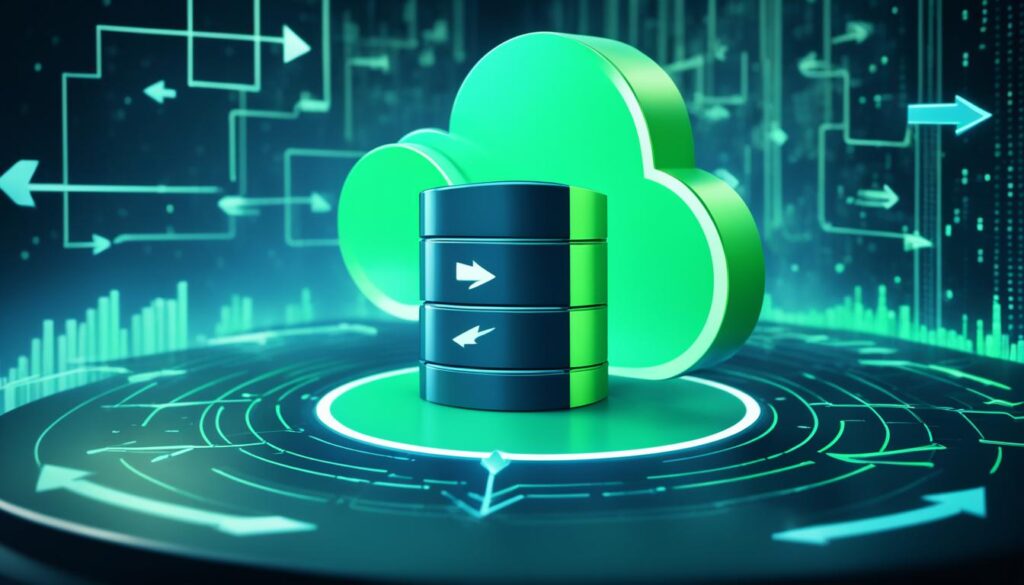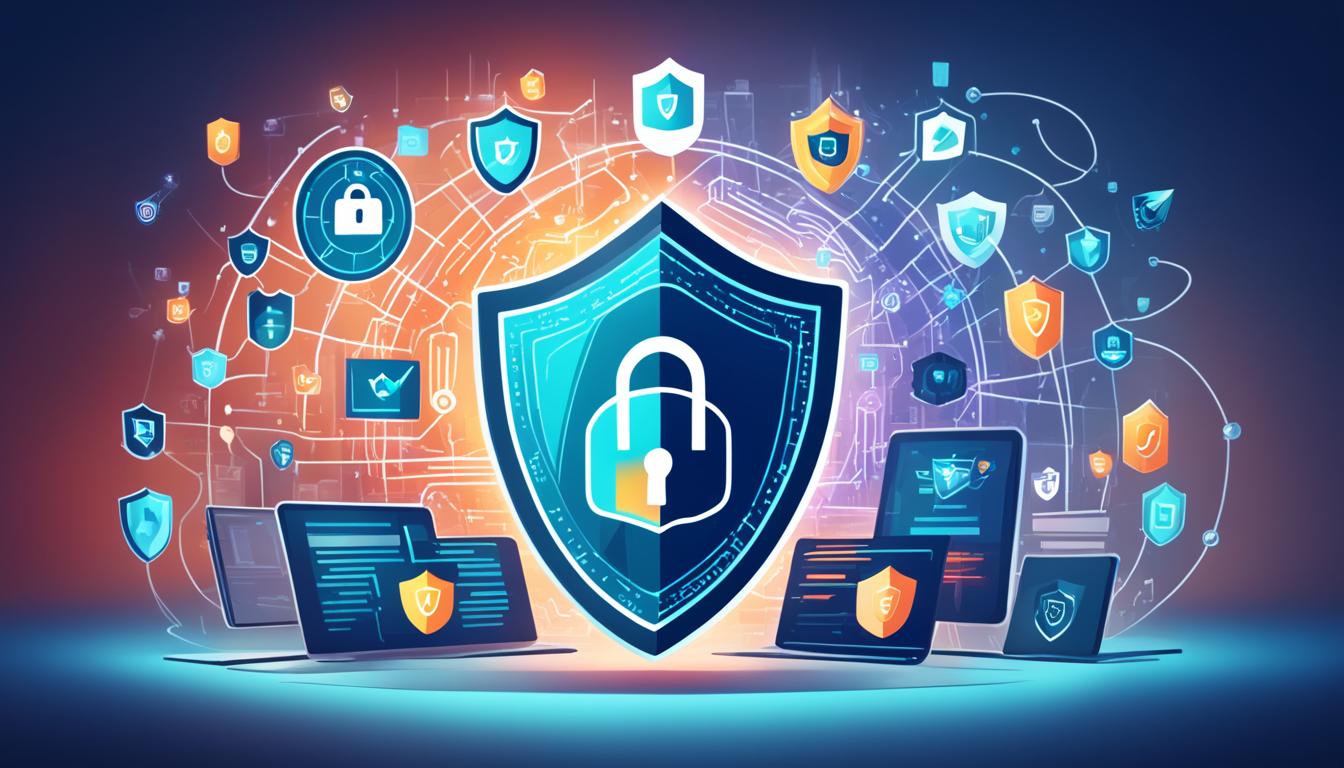Cybersecurity is crucial for small and medium-sized enterprises (SMEs) in today’s digital landscape. Implementing effective cybersecurity strategies can protect businesses from cyber threats and safeguard their sensitive data. In this article, we will provide tips and insights on cybersecurity implementation for SMEs, including best practices and guidelines.
Importance of Cybersecurity for Small Businesses
- Small businesses are increasingly becoming targets of cyberattacks due to their vulnerability and limited resources.
- Cyberattacks can have severe consequences for SMEs, including financial losses, reputational damage, and even business closure.
- To protect themselves, small businesses need to prioritize cybersecurity and understand the potential impact of cyberattacks on their operations.
- Implementing cybersecurity measures, such as risk management frameworks and security frameworks, can help protect SMEs from potential threats.
As a cybersecurity expert with years of experience working with small businesses, I have witnessed firsthand the devastating effects of cyberattacks on SMEs. It is crucial for SMEs to invest in cybersecurity and establish robust security measures to safeguard their valuable data and operations. In this article, I will share actionable insights and best practices to help SMEs navigate the complex world of cybersecurity and implement effective strategies.
Employee Training and Awareness
- One of the key cybersecurity strategies for SMEs is to train employees in security principles and establish a culture of security within the organization.
- Educating employees about the importance of strong passwords, safe internet use, and handling customer information securely is crucial.
- Creating and enforcing cybersecurity policies and guidelines can help employees understand their roles and responsibilities in protecting the company’s data and sensitive information.
Protecting Information and Networks
- SMEs should take proactive measures to protect their information, computers, and networks from cyber attacks.
- Keeping software and antivirus programs up to date, implementing firewall security for internet connections, and creating a mobile device action plan are essential.
- Regularly backing up important business data and limiting employee access to sensitive information are also crucial.
Secure Wi-Fi Networks and Payment Systems
- Small businesses should secure their Wi-Fi networks by using encryption, password protection, and hiding the network name.
- Following best practices for payment cards, such as working with trusted banks or processors and isolating payment systems from other programs, is necessary.
- Not using the same computer for processing payments and general internet use can also minimize the risk of financial fraud.
Encryption and Access Control
- Implementing data encryption can provide an additional layer of security for small businesses, especially when dealing with sensitive customer information or intellectual property.
- Establishing access control policies to limit employee access to data systems and ensuring strong passwords for each employee’s user account is crucial.
- By limiting access and privileges, businesses can reduce the risk of unauthorized data breaches and insider threats.
Regular Software Updates and Backups
- Regularly updating software and operating systems is crucial for small businesses to patch security vulnerabilities and protect against known threats.
- It is important to regularly backup important business data and store the backups either offsite or in the cloud.
- By staying up to date with software updates and having secure backups, SMEs can minimize the impact of potential cyberattacks and data loss.
Outsourcing and Cloud Services
- Small businesses can enhance their cybersecurity posture by outsourcing key IT systems to more established platforms and utilizing cloud-based technology.
- Cloud vendors often provide built-in security services, relieving small businesses of the responsibility of implementing comprehensive cybersecurity measures.
- By leveraging trusted third-party providers, SMEs can focus on their core business activities while benefiting from enhanced cybersecurity measures.
Education, Partnerships, and Resources
- SMEs can invest in cybersecurity education for employees, participate in cybersecurity partnerships with other small businesses, and utilize free government resources and tools.
- Educating employees about cybersecurity best practices, sharing insights and experiences with other businesses, and leveraging government resources can help small businesses strengthen their cybersecurity defenses without significant costs or technical expertise.
Importance of Cybersecurity for Small Businesses
Small businesses are increasingly becoming targets of cyberattacks due to their vulnerability and limited resources. Cyberattacks can have severe consequences for SMEs, including financial losses, reputational damage, and even business closure. It is important for small businesses to prioritize cybersecurity and understand the potential impact of cyberattacks on their operations.
Implementing cybersecurity measures, such as cybersecurity risk management frameworks and cybersecurity frameworks for SMEs, can help protect small businesses from potential threats. These frameworks provide a structured approach to identifying, assessing, and mitigating cybersecurity risks specific to SMEs. By following established frameworks, small businesses can establish a solid foundation for their cybersecurity strategy and ensure comprehensive protection against cyber threats.
To effectively manage cybersecurity risks, small businesses can adopt a range of cybersecurity measures for small businesses. These measures may include:
- Regularly updating software and systems to address security vulnerabilities
- Implementing firewalls and secure internet connections to protect against external threats
- Training employees on cybersecurity best practices to promote a culture of security
- Enforcing strong password policies and access controls to minimize the risk of unauthorized access
By implementing these cybersecurity measures, small businesses can significantly reduce their risk of falling victim to cyberattacks and protect their sensitive data. It is essential for SMEs to recognize that cybersecurity is not just an IT issue but a business priority that requires proactive planning and continuous improvement.
| Benefits of Cybersecurity for Small Businesses | Impact |
|---|---|
| Protection against financial losses | Prevents potential financial damages resulting from cyberattacks and data breaches. |
| Safeguarding reputation | Preserves the trust and confidence of customers, partners, and stakeholders by demonstrating a commitment to cybersecurity. |
| Prevention of business disruption | Reduces the likelihood of business interruptions and downtime caused by cyber incidents. |
| Compliance with regulations | Ensures adherence to industry-specific cybersecurity regulations and standards. |
| Protection of customer data | Secures sensitive customer information, including personal data and payment details. |
As cyber threats continue to evolve and become more sophisticated, small businesses must stay vigilant and proactive in their cybersecurity efforts. By investing in effective cybersecurity strategies, SMEs can safeguard their operations, maintain customer trust, and position themselves for long-term success in an increasingly digital world.
Employee Training and Awareness
One of the key cybersecurity strategies for SMEs is to prioritize employee training in security principles and establish a culture of security within the organization. By equipping employees with the knowledge and skills to identify and respond to potential cyber threats, businesses can significantly enhance their overall cybersecurity posture.
First and foremost, it is essential to educate employees about the importance of strong passwords and safe internet practices. Passwords should be unique, complex, and regularly updated. Additionally, employees should be cautious of suspicious emails, phishing attempts, and malicious websites that may compromise the security of company systems.
Handling customer information securely is another crucial aspect of employee training. Employees must understand the sensitivity and confidentiality of customer data, and the procedures that need to be followed to protect it. This includes adhering to data protection regulations and using secure channels for transmitting and storing sensitive information.
To ensure that cybersecurity practices are ingrained within the organization, it is vital to create and enforce cybersecurity policies and guidelines. These policies should outline the acceptable use of company systems, device security measures, and incident reporting procedures. By establishing clear expectations and guidelines, employees will have a better understanding of their roles and responsibilities in safeguarding the company’s data and sensitive information.
Employee training and awareness play a critical role in creating a culture of security within the organization. By investing in cybersecurity training programs and fostering a security-conscious mindset among employees, SMEs can significantly reduce the risk of cyber incidents and protect their valuable assets.
Benefits of Employee Training and Awareness
| Benefits | Explanation |
|---|---|
| Improved Cybersecurity | Employees become better equipped to identify and respond to potential cyber threats, reducing the risk of successful attacks. |
| Better Data Protection | Employee awareness and training ensure that customer information and sensitive data are handled securely, minimizing the risk of data breaches. |
| Compliance with Regulations | Training helps employees understand and adhere to relevant data protection and privacy regulations, avoiding potential legal and financial consequences. |
| Stronger Incident Response | Employees trained in cybersecurity practices can effectively identify and report security incidents, enabling timely response and containment. |
| Enhanced Risk Management | A security-conscious culture reduces the likelihood of human error and improves overall risk management within the organization. |
Protecting Information and Networks
Safeguarding data, maintaining a secure internet connection, and implementing robust firewall security are essential for small and medium-sized enterprises (SMEs) to protect their valuable information and networks from cyber attacks. As cyber threats continue to evolve, it is crucial for SMEs to take proactive measures to ensure the security and integrity of their data.
Here are some key steps that SMEs can take to enhance their cybersecurity posture:
1. Keeping Software and Antivirus Programs Up to Date
Regularly updating software and antivirus programs is crucial for protecting against known vulnerabilities and the latest cyber threats. By staying up to date with security patches and software updates, SMEs can strengthen their defenses and mitigate the risk of potential breaches.
2. Implementing Firewall Security for Internet Connections
Firewalls act as a barrier between internal networks and the internet, monitoring and controlling incoming and outgoing network traffic. By implementing firewall security, SMEs can establish an additional layer of protection, preventing unauthorized access and minimizing the risk of malicious activities.
3. Creating a Mobile Device Action Plan
As the use of mobile devices becomes increasingly prevalent in the business environment, it is crucial for SMEs to implement a comprehensive mobile device action plan to secure devices that can access company networks. This plan should include measures such as strong device encryption, remote data wiping capabilities, and the use of secure Wi-Fi networks.
4. Making Regular Backups of Business Data
Regularly backing up important business data is paramount for SMEs to ensure data integrity and facilitate data recovery in the event of a cyber incident. Backups should be stored securely, either offsite or in the cloud, to protect against data loss due to hardware failure, human error, or malicious activities.
5. Limiting Employee Access to Sensitive Information
Controlling and restricting employee access to sensitive information is crucial for minimizing the risk of unauthorized data breaches. SMEs should implement access control policies that enforce the principle of least privilege, ensuring that employees only have access to the data necessary to perform their job responsibilities.
By following these cybersecurity practices, SMEs can significantly enhance the protection of their valuable information and networks, safeguarding against potential cyber threats.
Secure Wi-Fi Networks and Payment Systems

Securing Wi-Fi networks and payment systems is of utmost importance for small businesses to protect sensitive data and prevent unauthorized access. By implementing best practices for securing Wi-Fi networks and payment cards, businesses can minimize the risk of financial fraud and ensure the privacy and security of their customers.
Securing Wi-Fi Networks
Small businesses should take the following steps to secure their Wi-Fi networks:
- Enable Wi-Fi encryption, such as WPA2, to prevent unauthorized users from accessing the network.
- Create a strong password for the Wi-Fi network, consisting of a combination of letters, numbers, and special characters.
- Change the default network name (SSID) to something unique to avoid easy identification by potential attackers.
- Regularly update the Wi-Fi router’s firmware to ensure the latest security patches are applied.
Implementing these measures helps ensure that only authorized users can connect to the Wi-Fi network and reduces the risk of data interception or unauthorized access.
Best Practices for Payment Cards
When it comes to accepting payments, small businesses should adhere to the following best practices:
- Work with trusted banks or payment processors that have robust security measures in place to protect payment transactions.
- Isolate payment systems from other programs and devices to minimize the risk of malicious software compromising sensitive data.
- Avoid using the same computer for processing payments and general internet use, as this increases the likelihood of malware affecting payment card data.
- Regularly monitor payment systems for any suspicious activity or unauthorized access.
By following these best practices, small businesses can ensure the security of payment card information and protect their customers from potential financial fraud.
| Securing Wi-Fi Networks | Best Practices for Payment Cards |
|---|---|
| Enable Wi-Fi encryption | Work with trusted banks or processors |
| Create strong Wi-Fi password | Isolate payment systems from other programs |
| Change default network name (SSID) | Avoid using same computer for payments and general internet use |
| Regularly update Wi-Fi router firmware | Monitor payment systems for suspicious activity |
Encryption and Access Control
Implementing data encryption is an essential step that small businesses can take to enhance their cybersecurity defenses. Encryption adds an extra layer of protection to sensitive customer information and valuable intellectual property. By encoding data, even if it falls into the wrong hands, it remains unintelligible and useless without the proper decryption key. This is especially crucial when transmitting or storing data in cloud-based systems or through external networks.
Another vital aspect of cybersecurity is limiting employee access to data. By establishing access control policies, small businesses can ensure that only authorized individuals can access sensitive data systems. Each employee should have a separate user account with unique credentials, including strong passwords and multi-factor authentication when possible. This helps minimize the risk of unauthorized data breaches and mitigates the potential threat of insider attacks.
To illustrate the importance of encryption and access control, consider the following scenarios:
- Scenario 1: A small online retailer handles customers’ personal and financial information. Implementing encryption ensures that even if there is a security breach, the data remains protected and unreadable to hackers. Without the proper decryption key, their efforts to exploit the information become futile.
- Scenario 2: An employee with access to sensitive company data decides to resign. By limiting their access to only the data necessary for their job role, the risk of them mishandling or intentionally misusing the data is significantly reduced. This prevents a potential insider threat from causing harm to the business.
By combining data encryption practices with access control policies, small businesses can fortify their cybersecurity posture and minimize the possibility of data breaches and unauthorized access.
When implementing encryption and access control, small businesses should consider the following best practices:
- Utilize strong encryption algorithms that comply with industry standards and regulations.
- Implement encryption at rest and encryption in transit to protect data both at rest and during transmission.
- Regularly update encryption protocols to address any vulnerabilities or weaknesses.
- Perform regular audits to ensure compliance with access control policies and user account management.
- Train employees on the importance of data encryption and access control, emphasizing the role they play in maintaining the security of the organization’s data.
By prioritizing data encryption and access control, small businesses can safeguard their valuable assets and build trust with their customers and partners.
Regular Software Updates and Backups

Regularly updating software and operating systems is crucial for small businesses to ensure their cybersecurity. By patching security vulnerabilities and protecting against known threats, businesses can minimize the risk of cyberattacks and data breaches. Staying up to date with the latest software updates is an essential part of maintaining a strong cybersecurity posture.
Benefits of Regular Software Updates
- Improved Security: Software updates often include security patches that address vulnerabilities and protect against emerging threats. By keeping software up to date, small businesses can strengthen their defense against cyber threats.
- Enhanced Features: Software updates can also introduce new features and functionalities that can benefit small businesses. Taking advantage of these updates allows businesses to stay competitive and improve their operations.
- Compatibility: By regularly updating software, businesses can ensure compatibility with other applications and systems, preventing any potential conflicts or issues that may arise.
Data Backups: A Crucial Safeguard
Aside from software updates, regular data backups are essential for small businesses to protect themselves against data loss. Backing up important business data helps ensure continuity in the event of a cyberattack, hardware failure, or natural disaster.
By implementing a robust backup strategy, small businesses can recover their data and minimize the impact of potential data breaches or disasters. It is recommended to store backups either offsite or in the cloud to safeguard against physical damage or localized outages.
Comparison of Backup Storage Options
| Backup Storage Option | Advantages | Considerations |
|---|---|---|
| On-premises |
|
|
| Cloud storage |
|
|
Choosing the right backup storage option depends on the specific needs and resources of each small business. Some businesses may prefer the control and cost-effectiveness of on-premises storage, while others may opt for the convenience and scalability of cloud storage.
Regardless of the chosen backup storage option, small businesses should regularly test their backup and recovery processes to ensure the integrity and accessibility of their data.
Outsourcing and Cloud Services
Small businesses can greatly enhance their cybersecurity posture by outsourcing key IT systems to more established platforms and utilizing cloud-based technology. This strategic approach allows businesses to leverage the expertise and resources of trusted third-party providers while benefiting from enhanced cybersecurity measures.
When outsourcing IT systems, small businesses can hand over the responsibility of implementing and managing cybersecurity measures to cloud vendors. Cloud-based technology offers built-in security services that can effectively protect sensitive data and systems from cyber threats. By relying on these security measures, small businesses can focus on their core activities without the added burden of cybersecurity management.
Cloud vendors typically implement robust security protocols, encryption, and access controls to protect their clients’ data. They have dedicated teams of cybersecurity professionals who constantly monitor and update security measures to stay ahead of evolving threats. This level of expertise and focus on cybersecurity allows small businesses to benefit from enterprise-grade security, even with limited internal resources.
By adopting cloud-based technology, small businesses can also benefit from features such as multi-factor authentication, data backups, and disaster recovery capabilities. These features provide an added layer of protection against data breaches, loss of data, and potential downtime resulting from cyber incidents.
Advantages of Outsourcing and Cloud Services
Outsourcing IT systems and leveraging cloud services offer several key advantages for small businesses:
- Access to enterprise-level cybersecurity expertise and resources
- Built-in security measures provided by cloud vendors
- Cost savings compared to maintaining an in-house IT security team
- Scalability and flexibility to adapt to changing business needs
- Increased efficiency by offloading IT management and maintenance tasks
| Advantages of Outsourcing and Cloud Services | |
|---|---|
| Access to enterprise-level cybersecurity expertise and resources | ✔ |
| Built-in security measures provided by cloud vendors | ✔ |
| Cost savings compared to maintaining an in-house IT security team | ✔ |
| Scalability and flexibility to adapt to changing business needs | ✔ |
| Increased efficiency by offloading IT management and maintenance tasks | ✔ |
Education, Partnerships, and Resources
As SMEs strive to enhance their cybersecurity defenses, investing in cybersecurity education for employees, fostering partnerships with other small businesses, and leveraging free government resources and tools are effective strategies. By educating employees about cybersecurity best practices, we can empower them to recognize and mitigate potential threats. This includes training on password security, safe internet usage, and handling customer information securely.
Collaborating with other small businesses through cybersecurity partnerships can provide valuable insights and experiences. Sharing knowledge and best practices with like-minded organizations ensures a collective effort to combat cyber threats. By learning from each other’s successes and challenges, we strengthen our cybersecurity posture and stay one step ahead of potential attackers.
In addition, taking advantage of free government resources and tools can significantly bolster our cybersecurity defenses. Government agencies offer a wealth of information, guidelines, and frameworks to assist small businesses in implementing effective cybersecurity measures. These resources are designed to be accessible and user-friendly, even for those without extensive technical expertise.
By prioritizing cybersecurity education, forming partnerships, and utilizing free government resources, SMEs can strengthen their defenses against evolving cyber threats. These proactive measures not only safeguard our businesses but also foster a culture of security within our organizations. Achieving robust and resilient cybersecurity need not be daunting; it is an achievable goal through continuous learning, collaboration, and leveraging the available resources.







